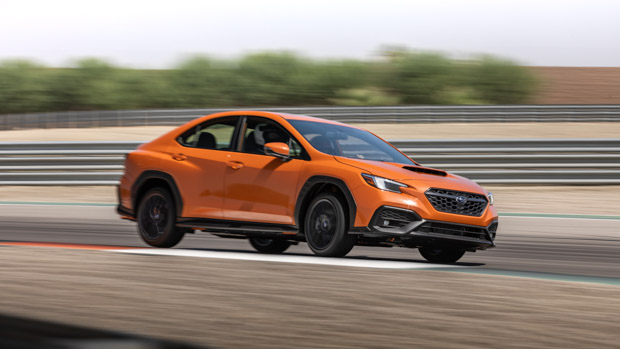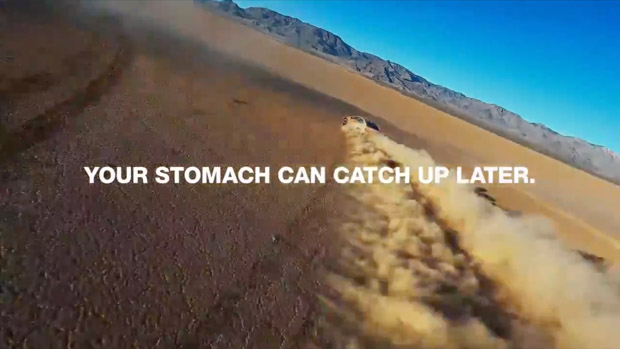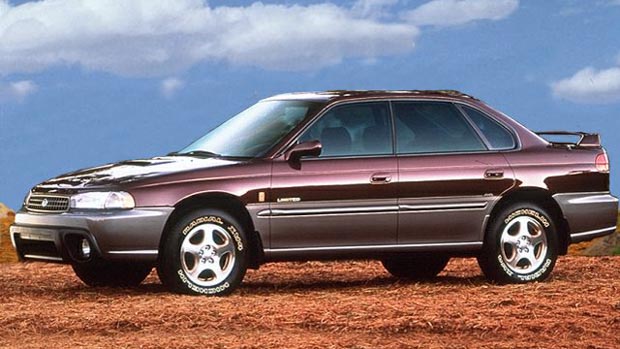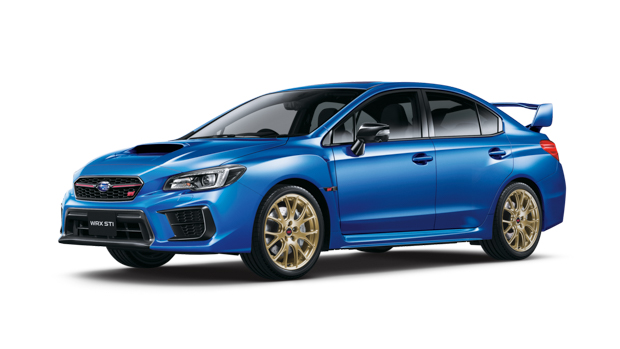-
Car Reviews
- Car News
-
Car Comparisons
Latest comparisons
- Chasing Deals
Most of the clamour online over the styling of the new Subaru WRX relates to the sports sedan’s prominent cladding – so why is it there?
In a nod to the car’s gravel road-blasting intentions, the new Subaru WRX features prominent unpainted plastic body cladding.
Cladding isn’t typically found on the modern rally cars that inspired the existence of the original Subaru Impreza WRX – and its simply-named WRX successors – so what is it doing on the new 2022 WRX?
Theories vary. The cladding is a nod to Subaru’s famously pragmatic and purpose-driven attitudes to design – but it’s also a strategy to dip into SUV and crossover cues.
In recent years, traditional sedans – of which the three-box WRX is an example – have fallen off a cliff in terms of sales volume and popularity with mainstream buyers. Sedans have largely been replaced by SUVs on driveways across Australia, the United States and even Europe.
But the WRX is not a car that appeals to the mainstream buyer – it’s a cult sports car that evokes the spirit of Colin McRae and other Subaru rallying greats of the nineties.
While most Subaru WRX buyers don’t venture off tarmac, this vehicle is still engineered to cope with fast gravel road driving.
Production versions of the WRX lack the kind of serious underbody protection you need for genuine rally-car driving, but the standard WRX can still handle rough roads better than most of its low-slung rivals.
Sitting relatively high for a performance sedan – and, naturally, equipped with a full-time four-wheel-drive system – the WRX remains a modern rally car for the road.
Enter the plastic cladding: not featured on the outgoing VA-series WRX, the new body shielding is an overt nod to this car’s gravel-bashing aspirations.
Designed to protect the paint from small rocks and stones flung up from four spinning wheels, the cladding serves a mainly cosmetic purpose.
That said, even though the cladding on the 2022 WRX is noticeable, it’s probably too minimal to do all that much when you’re Scandinavian-flicking around a gravel-laid hairpin.
This is not the first time Subaru has created a sedan with overt body cladding.
The American-market Subaru Legacy SUS – or Sport Utility Sedan – appeared in 1998, borrowing the body of the second-generation Subaru Liberty, known as the Legacy in overseas markets.
The 1998 SUS didn’t just add dark cladding to the body of the Liberty – it also included a lift that made the three-boxer effectively an Outback sedan.
Subaru found a reasonable level of interest from practical buyers in the New England region of the United States, so an Outback sedan became a fixture of the third-generation Liberty / second-generation Outback lineup in America.
Unbeknownst to most Australian buyers, an Outback sedan again appeared in Subaru’s American lineup in fourth-generation form until 2007.
It has been rumoured that the 2022 Subaru WRX STI will not share the overt plastic cladding of its less powerful WRX sibling.
To differentiate the more frenetic STI from the WRX, Subaru may opt to paint the cladding body colour for a more unified aesthetic.
The aggressive aerodynamic treatment of the WRX STI means there is already plenty going on – from bigger 19-inch wheels to a huge rear wing akin to that seen on the outgoing 2021 model.
It’s feasible that Subaru could turn the next WRX STI into a hyper-rally car in pursuit of buyers who have been drawn to the Toyota GR Yaris Rallye.
In building their new rally car for the road, though, Toyota opted against body cladding – preferring pumped haunches painted entirely in body colour.
Latest news
About Chasing cars
Chasing Cars reviews are 100% independent.
Because we are powered by Budget Direct Insurance, we don’t receive advertising or sales revenue from car manufacturers.
We’re truly independent – giving you Australia’s best car reviews.



